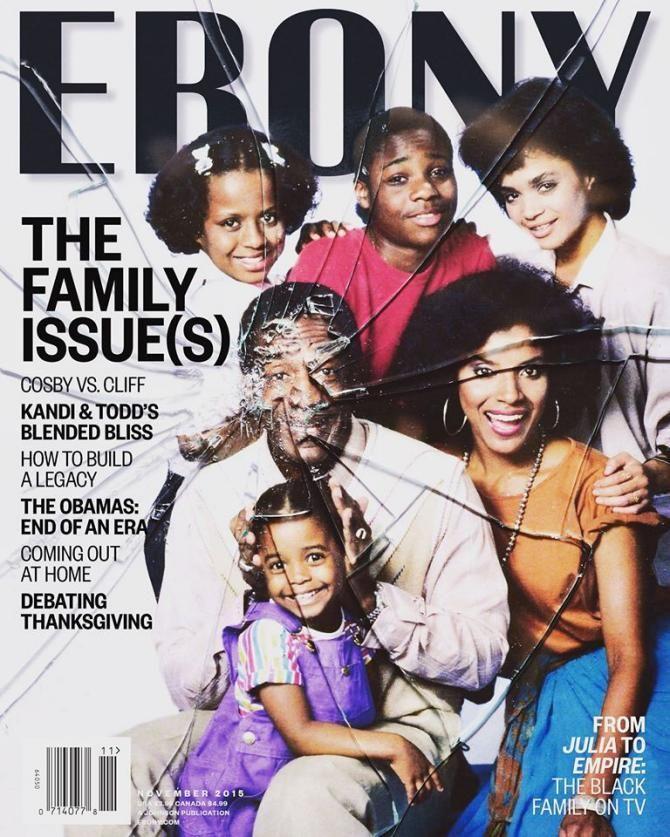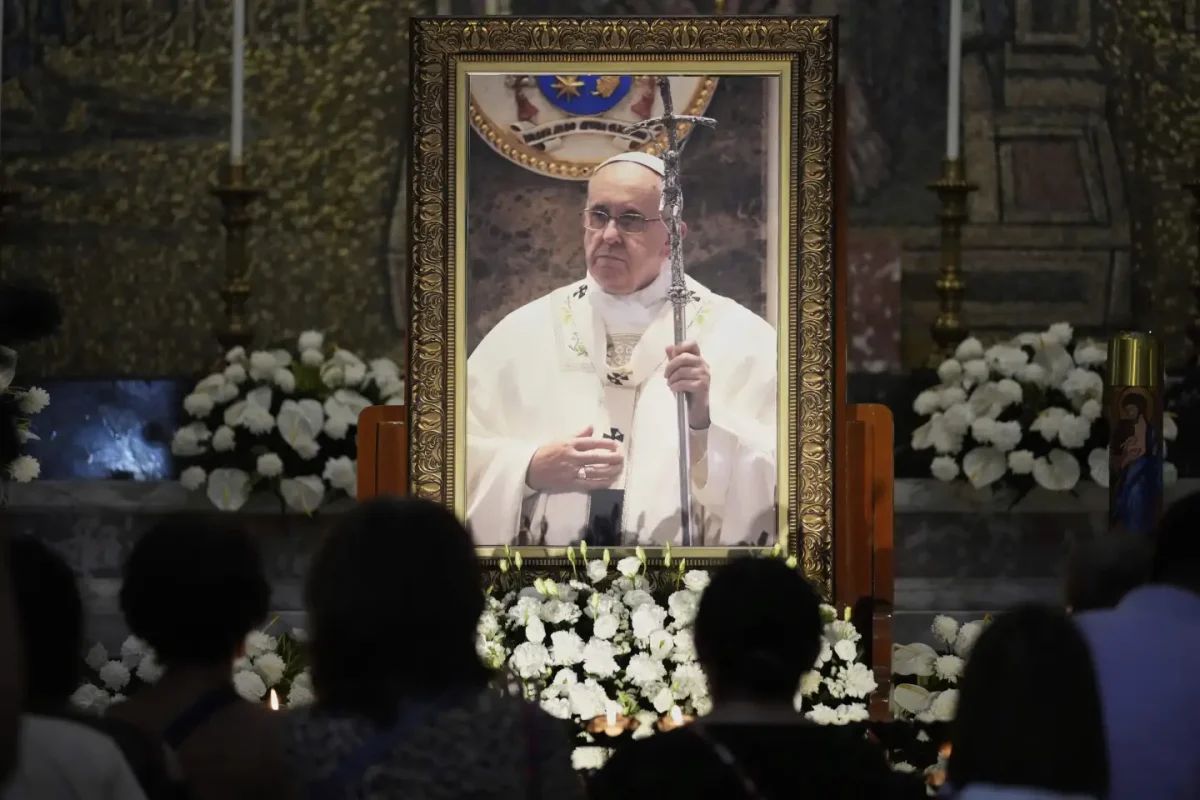The November cover of Ebony magazine features an iconic photo of the Huxtable family shattered with the apex rooted over Bill Cosby’s face. Ebony’s feature story was an exposition of the Cosby rape scandal, whether the show should re-air and how divisive the issue is among the black community.
Earlier in the semester I wrote why I was still pro-Cosby’s legacy and less in support of the person he was.
The writer of this story, Goldie Taylor, asks a pertinent question in the beginning: “If Bill Cosby is finished, what does that mean for Cliff, and the rest of the tribe called Huxtable?”
Phylicia Rashad, Malcolm-Jamal Warner, Tempestt Bledsoe and the rest of “The Cosby Show” family do not need to be dragged in the muck left behind Cosby’s actions.
Taylor goes on to examine the socio-economic constructs of the mid-’80s for blacks and why the refuge found in the Huxtable household was so appealing.
The crack epidemic was raging, and for 30 minutes every night, blacks could see “what we believe was the best in us.” For “white Americans, it said implicitly that the American dream was alive and that it was available to everyone who worked for it, who played by the rules.”
“The Cosby Show” is a beacon of light in a media landscape, which often disparages the black face.
Warner, who portrayed Theo Huxtable, noted that “The Cosby Show” can no longer be held against “images that perpetuate the negative stereotype of people of color.” Until last fall when “Black-ish” premiered, a critically acclaimed show portraying a black family in a positive light since “The Cosby Show” had not been created.
Public pressure forced TV Land to stop re-airing “The Cosby Show,” and for their politically correct bottom-line, this can be understood. BET as a network, whose sole purpose is to speak to black people, needs to be courageous, buck the scorn from social justice warrior Twitter fingers’ and air the show.
Those who worked on the show deserve their royalties because they did not rape, assault or violate anyone.
Some feel the Cosby debacle is too raw to be discussed negatively by Ebony magazine, an important voice of the black community.
While I understand touchy subjects, we need to discuss this and every issue affecting the black community frankly. This is why I will never stop advocating for the responsible application of respectability politics, like the morals taught on “The Cosby Show.”
The dual threads of the values taught on “The Cosby Show” and Cosby’s actions do not intertwine. “The Cosby Show” remains a shining example of what can happen when people put their noses to the grindstone, put their success above all and focus on creating a better situation for themselves.
As time goes on and the hype around the issue subsides, I feel confident “The Cosby Show” will once again become the pre-eminent home for black familial success portrayed on the small screen.
Garrett Hines is a 21-year-old political science senior from Monroe, Louisiana. You can reach him on Twitter @garretH_TDR.
Opinion: Ebony cover story renews questions about Cosby’s legacy
October 26, 2015
More to Discover









